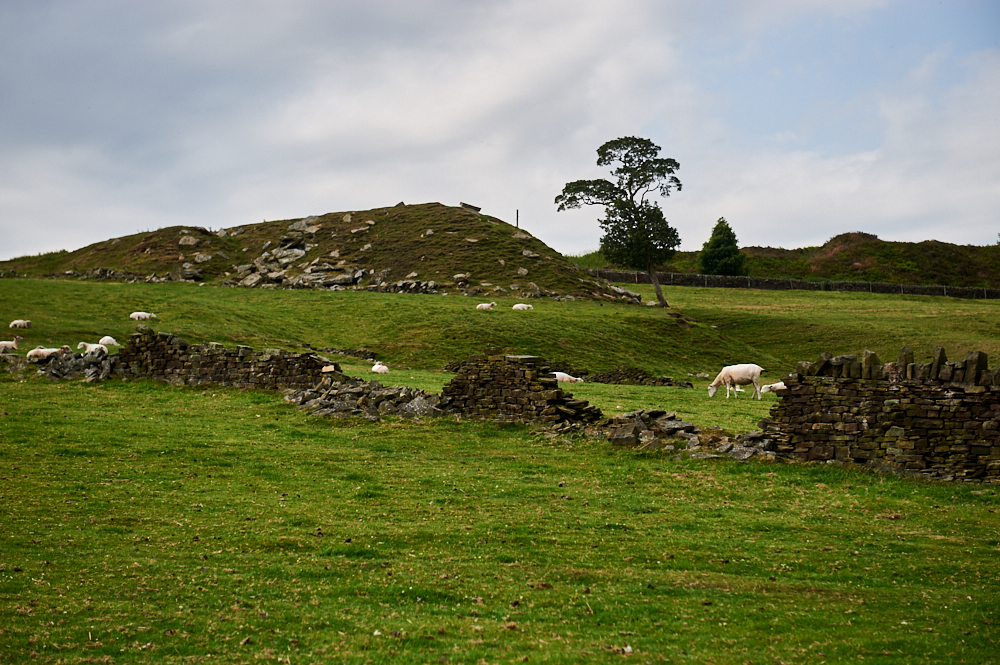
Top Withens – the rumoured inspiration for Brontës “Wuthering Heights”. Even so, that might not be true walking there is a wonderful circular walk through Brontë Country.
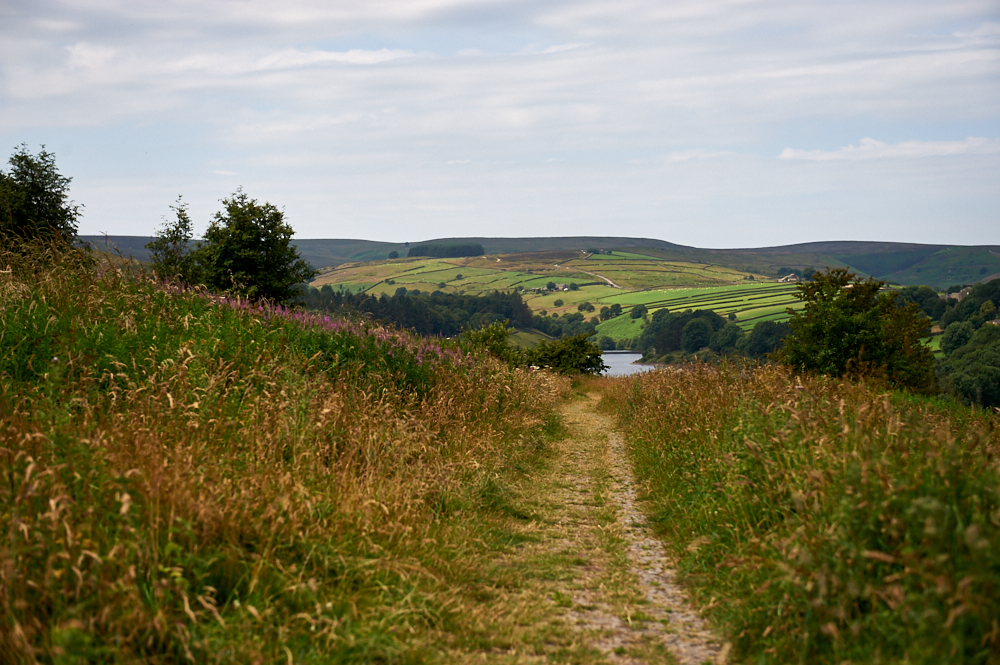
I started at Haworth Main Street, passed the church and the parsonage and in the direction of the Lower Laithe reservoir, opened in 1925.
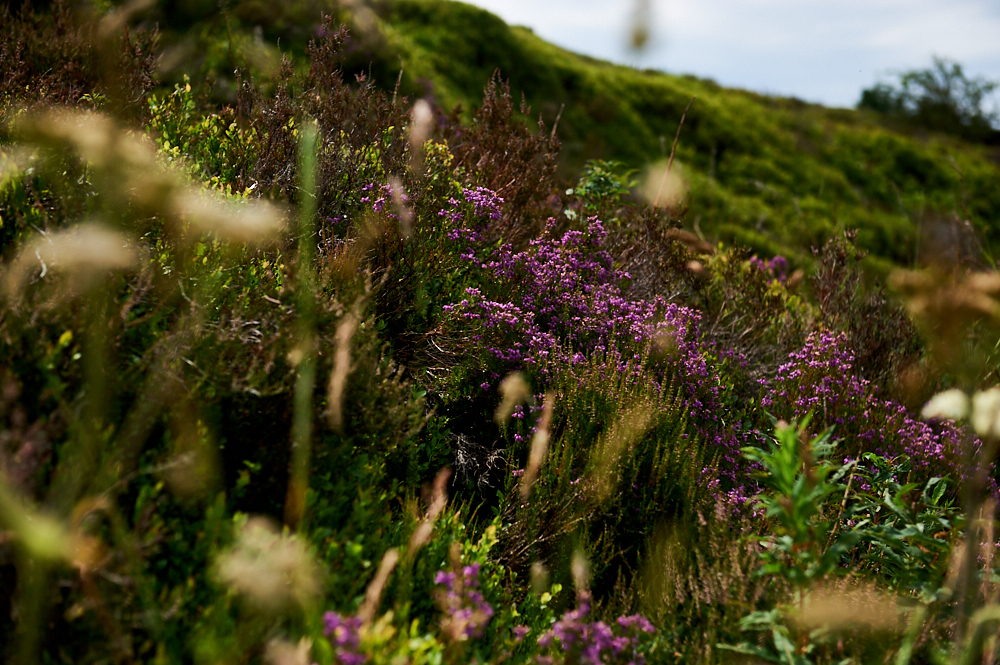
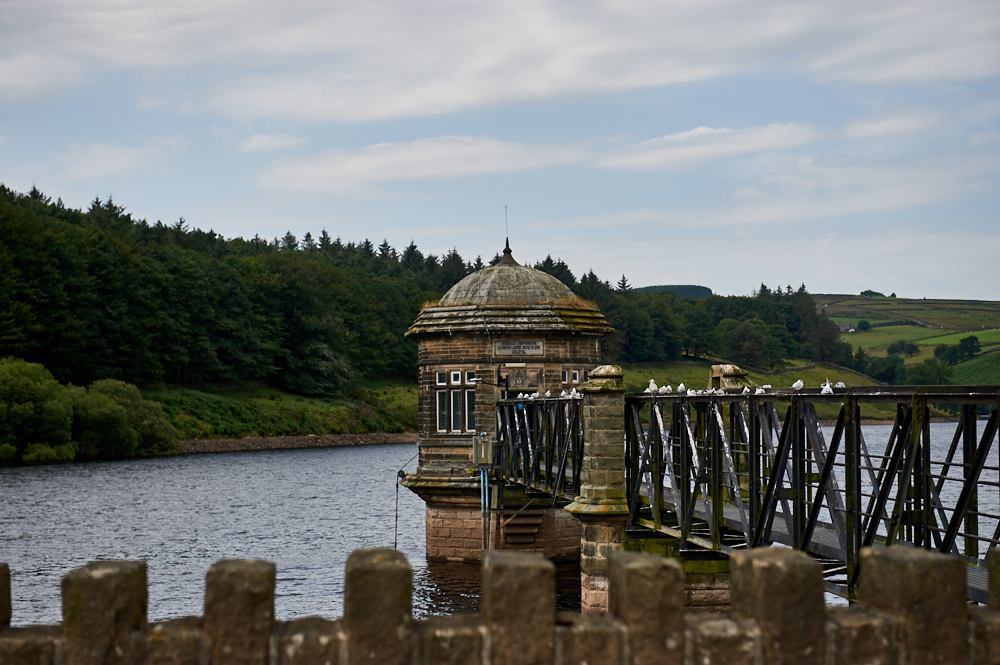
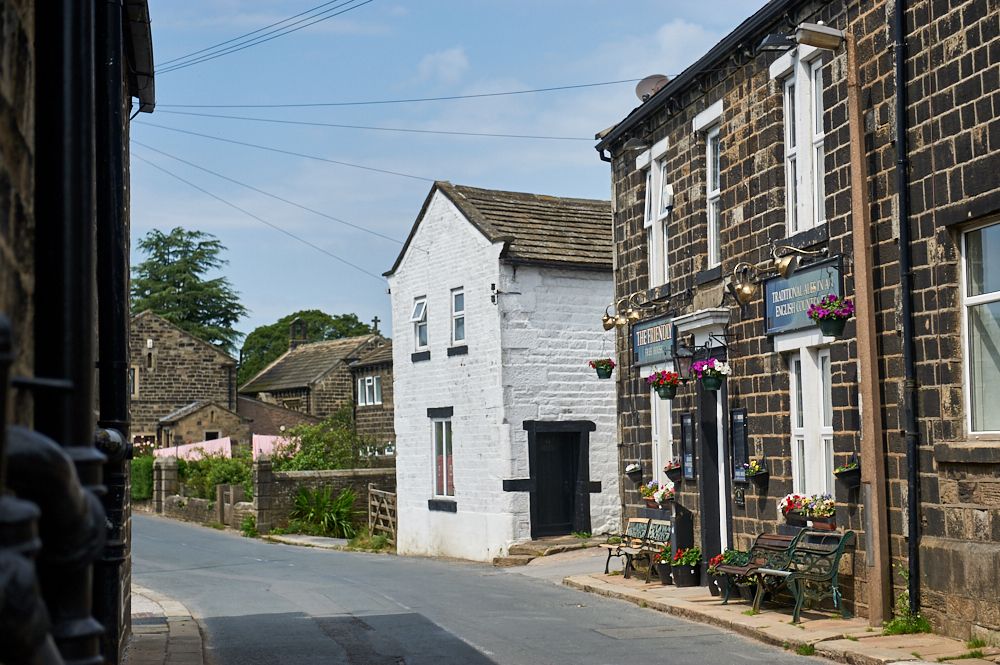
Passing through Stanbury – if it wouldn´t have been in the morning I might have stopped in one of the two pubs….
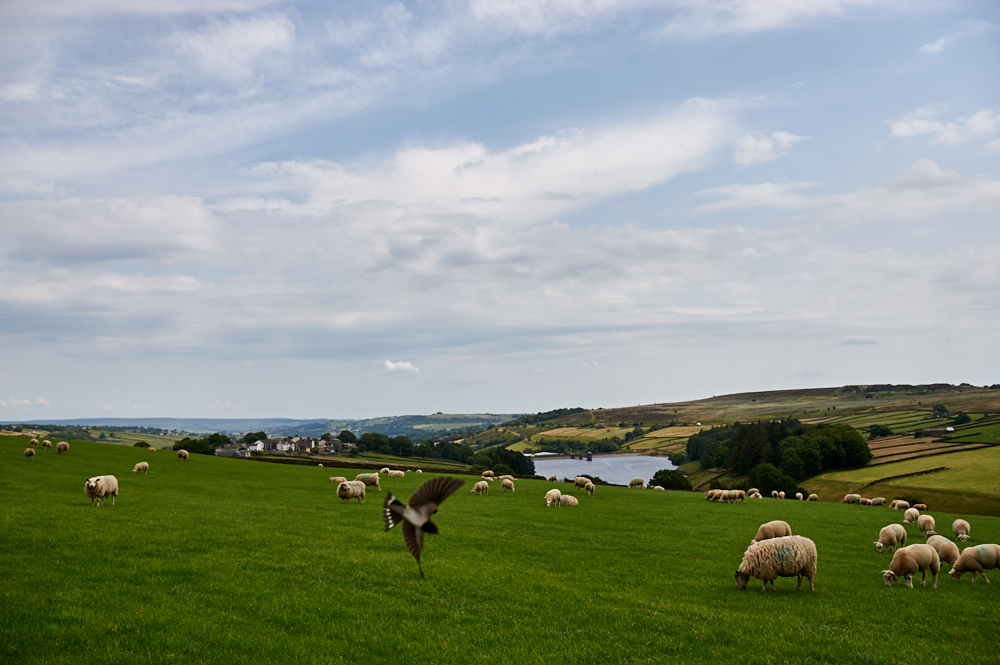
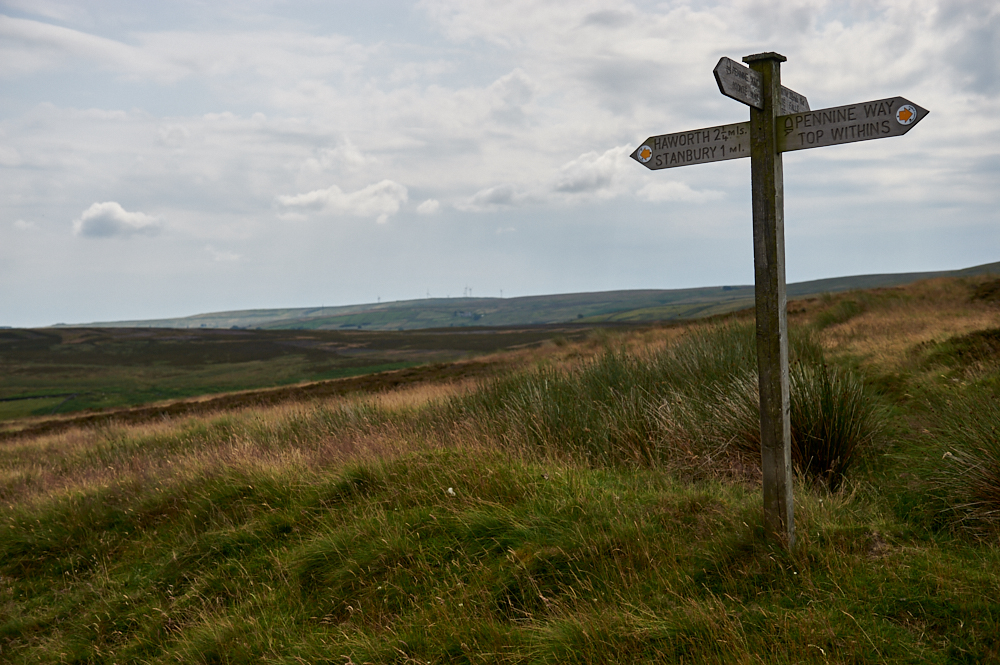
Moorland paths
Emily Brontë loved the moors. They were a playground and an escape. As an adult she walked them regularly, alone or with her sisters and they feature heavily in her writing. Her fictional interpretation of the landscape has become one of the reasons for our own romantic view, but she would have been well aware of the hardship and danger for the people who lived and worked there. (The History Girls)
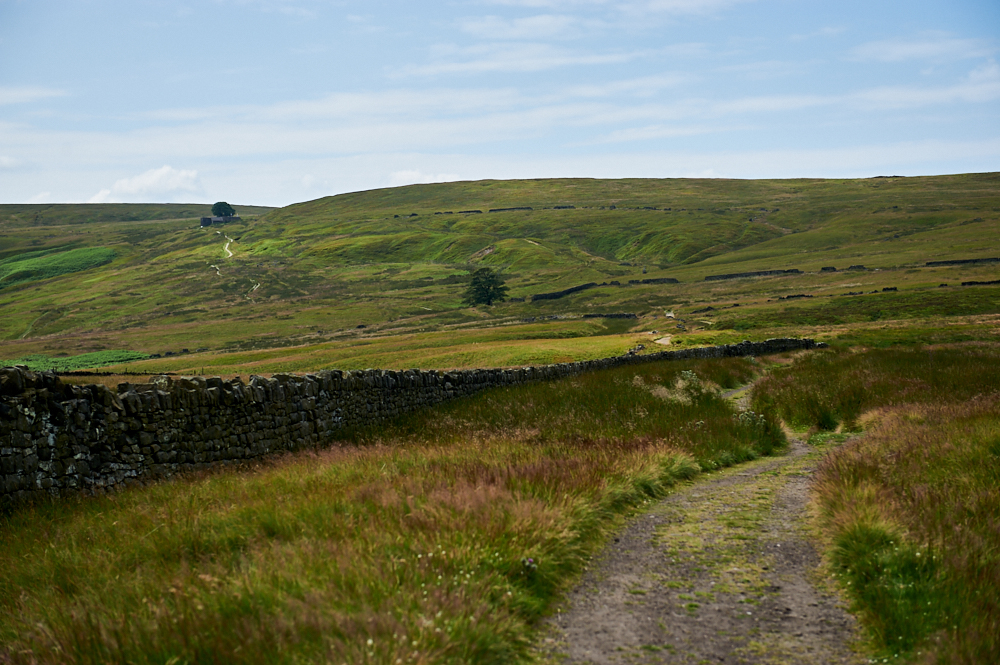

Originally known as “Top of th’Withens”, Top Withens was probably built in the second half of the 16th century by George Bentley (or his relatives). At the time of the Brontës, it was inhabited by Jonas Sunderland and his wife Ann Crabtree (from 1811) and then their son, Jonas, with Mary Feather (from 1833). It was last inhabited by Ernest Roddy in 1926. (Wuthering Heights.co.uk)
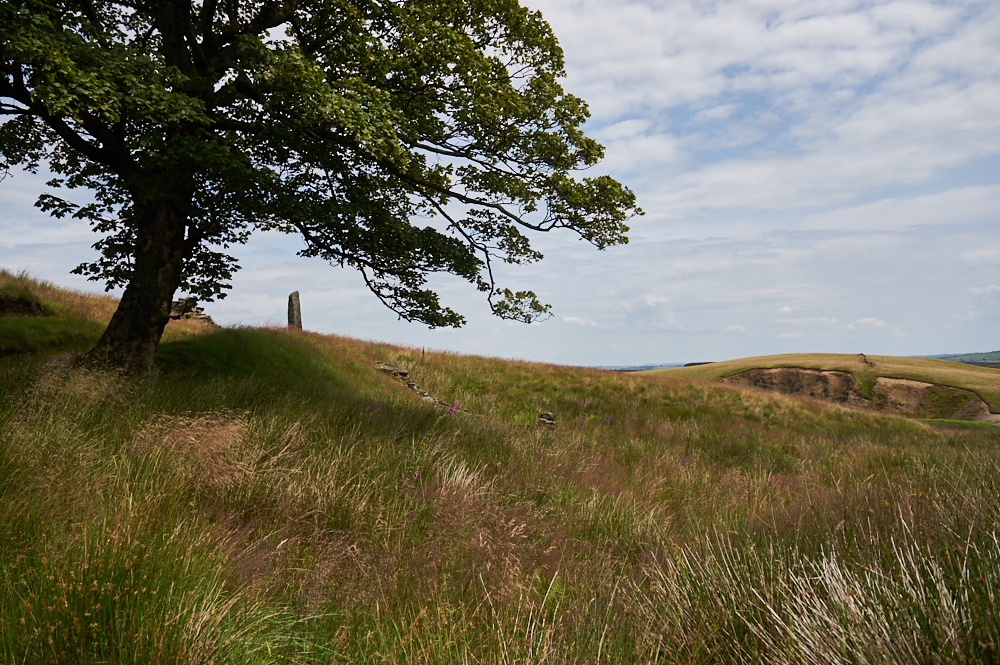
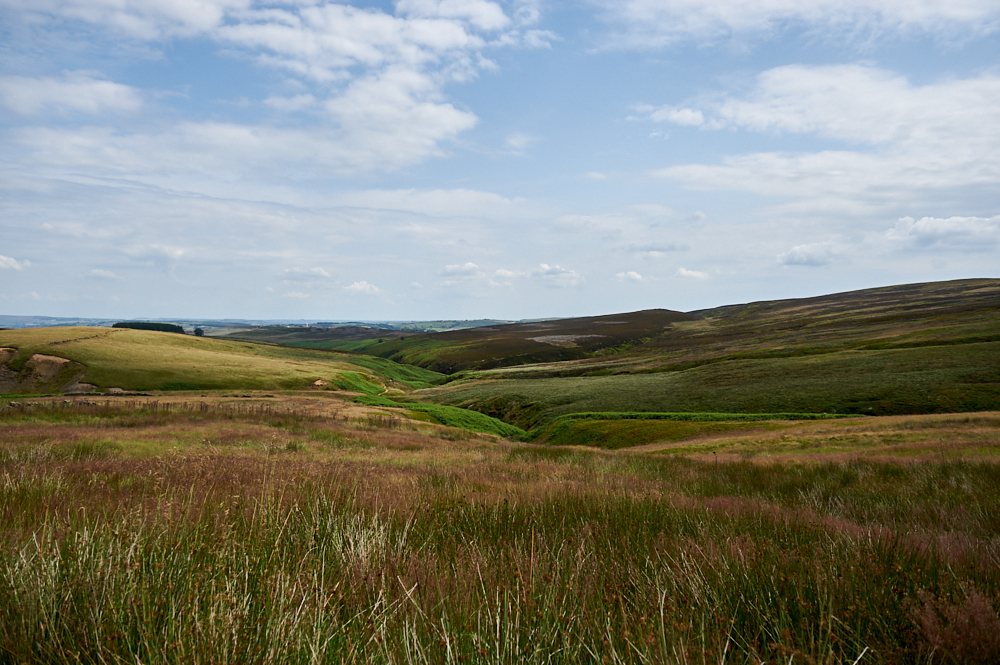
View from Top Withens
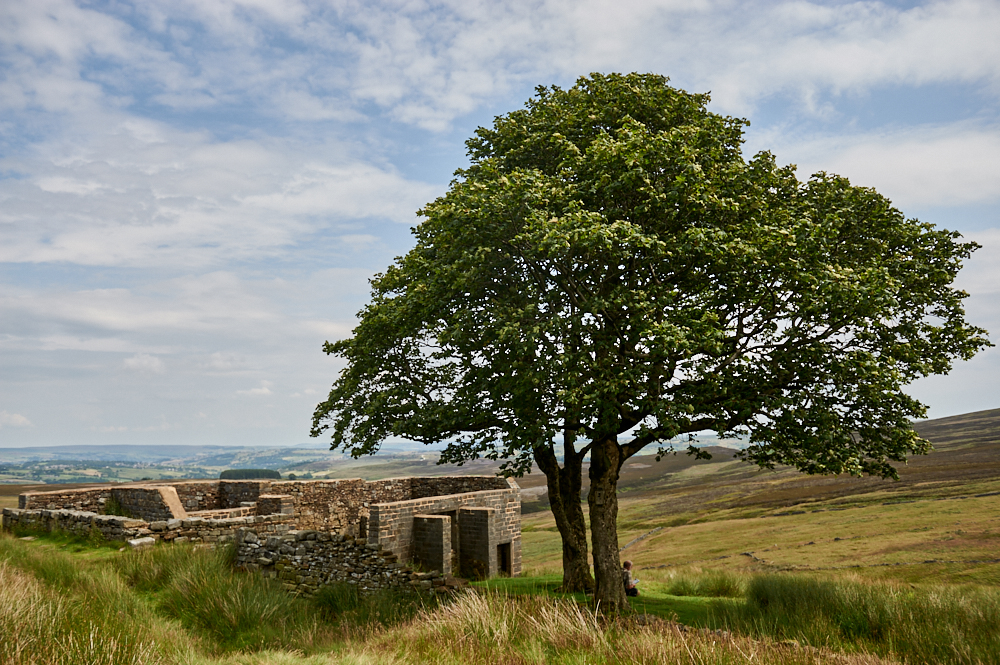
Most farms relied on dairy farming for the bulk of their income, but those nearest the moors also kept sheep, while setting aside small tracts of land for pasture and cattle meadows, and to grow oats. The meagre living scratched from the earth by moorland farming families was never enough to thrive, and most would have relied on quarrying and weaving to supplement the family income. The Worth Valley surrounding Top Withens is dotted with old quarry sites. (Britainexpress)
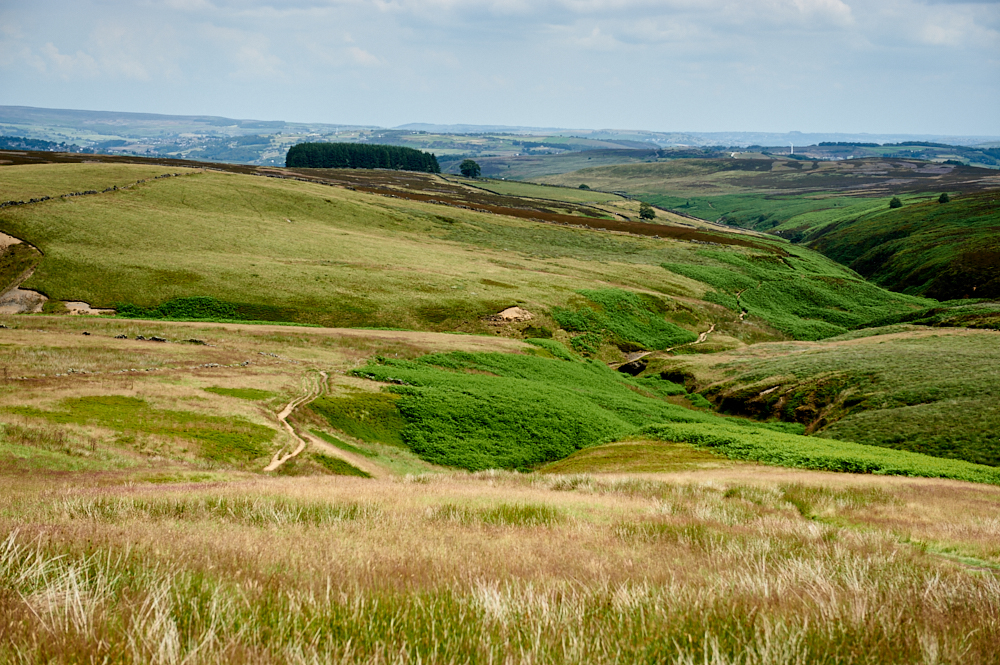
The views from Top Withens over the moors were simply stunning. It´s the perfect place for a little picknick, lying under the trees and just looking around.
From here I simply followed the Brontë Trail to the Brontë Bridge and Waterfall.
Brontë Bridge & Waterfall
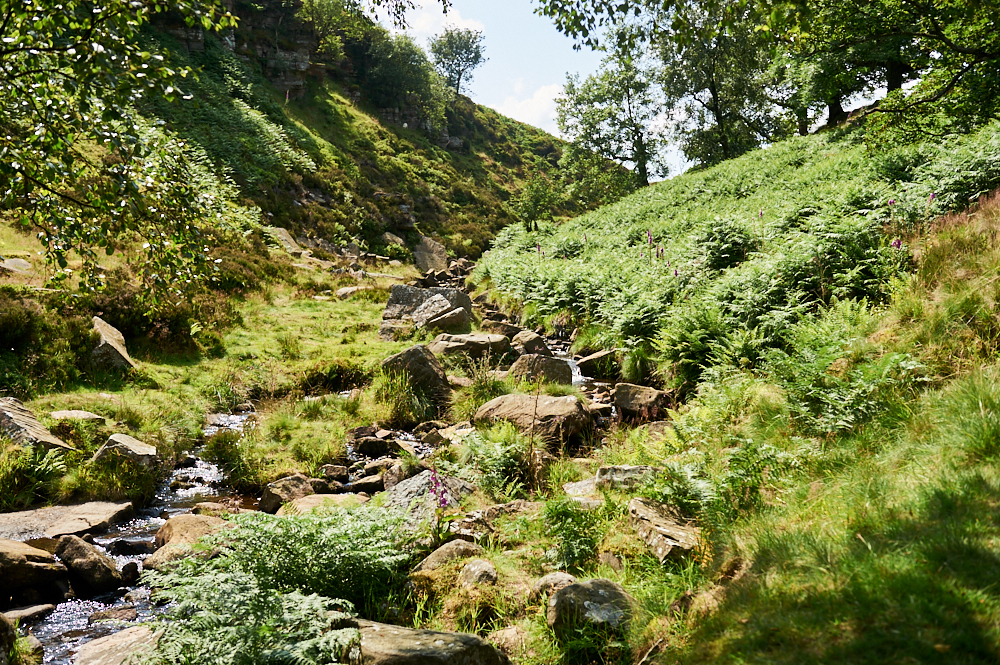
“I intended to have written a line yesterday, but just as I was sitting down for that purpose, Arthur called to me to take a walk. We set off, not intending to go far; but though wild and cloudy it was fine in the morning; when we got about half-a-mile on the moors, Arthur suggested the idea of the waterfall; after the melted snow, he said it would be fine. I had often wished to see it in its winter power, so we walked on. It was fine indeed; a perfect torrent racing over the rocks, white and beautiful!” (Charlotte Brontë, November 29th 1854)
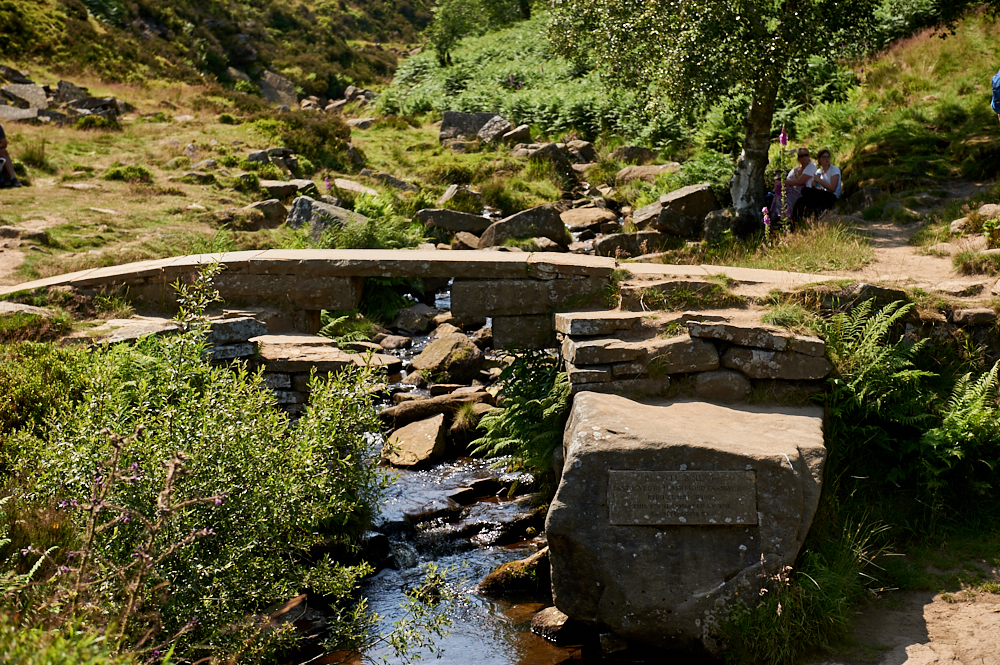
I made my way back into Howarth and treated myself to some cream tea – the scones were delicious!
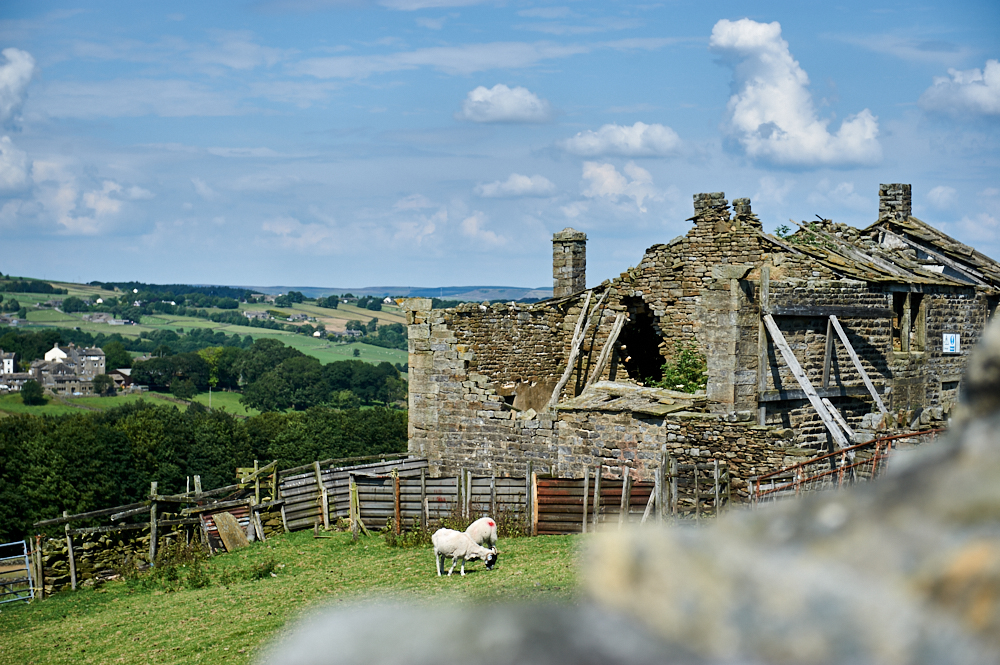
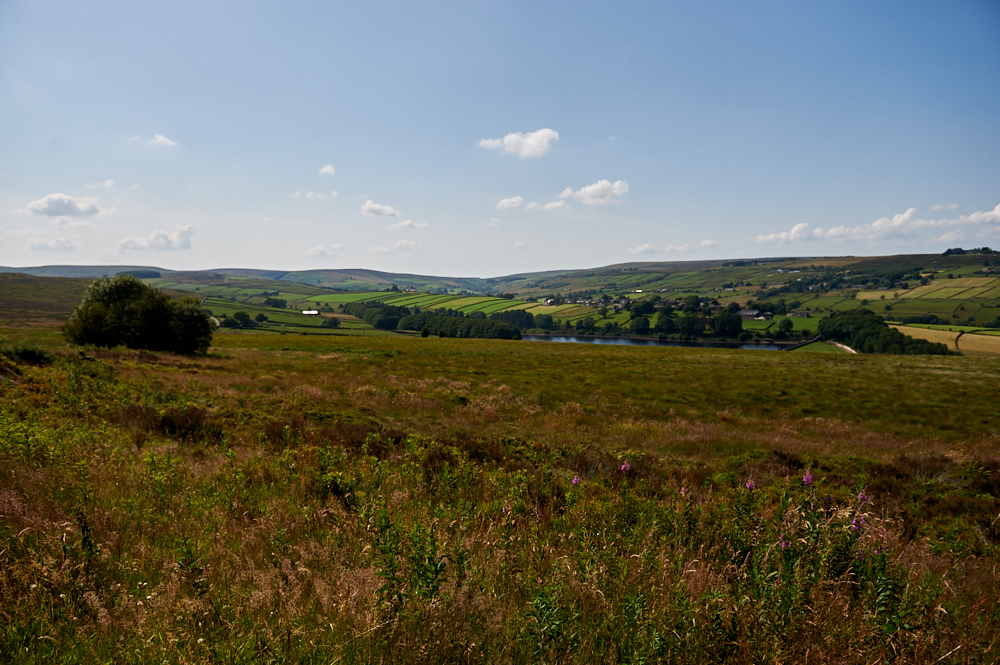
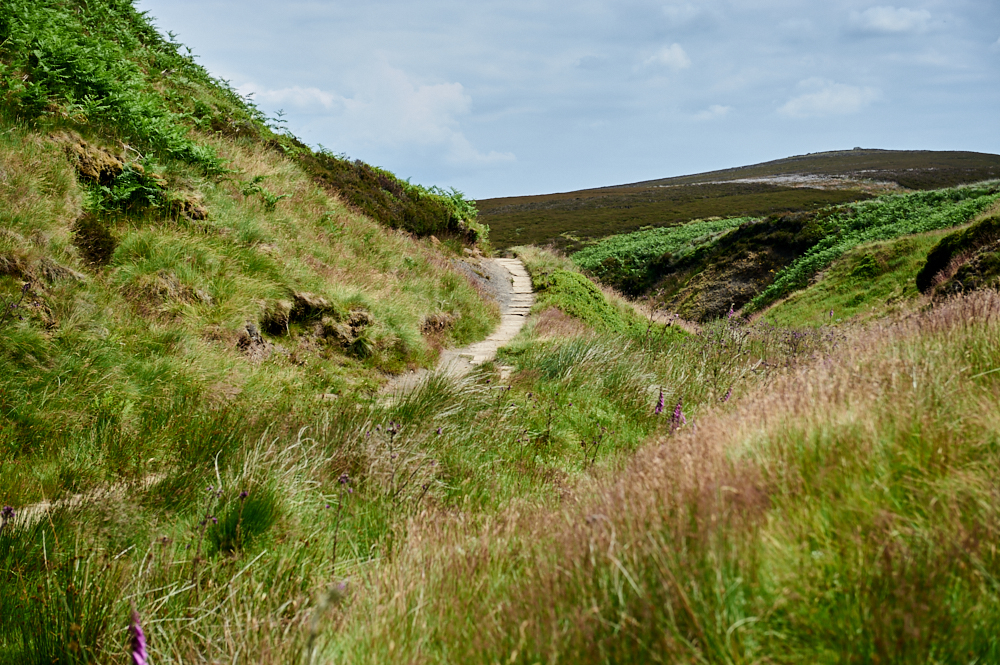
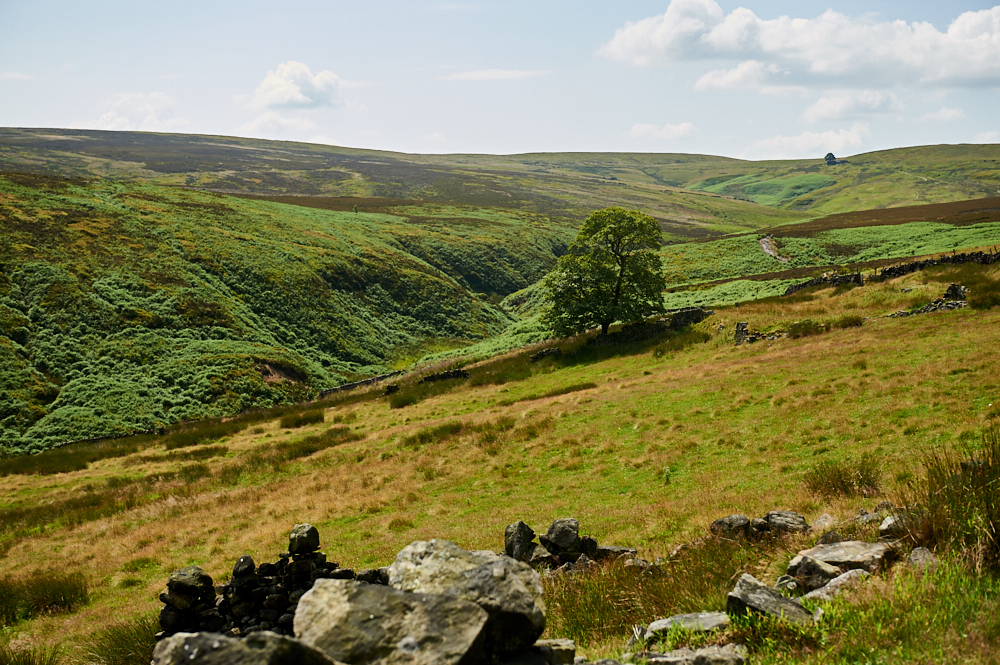
Leave a Reply